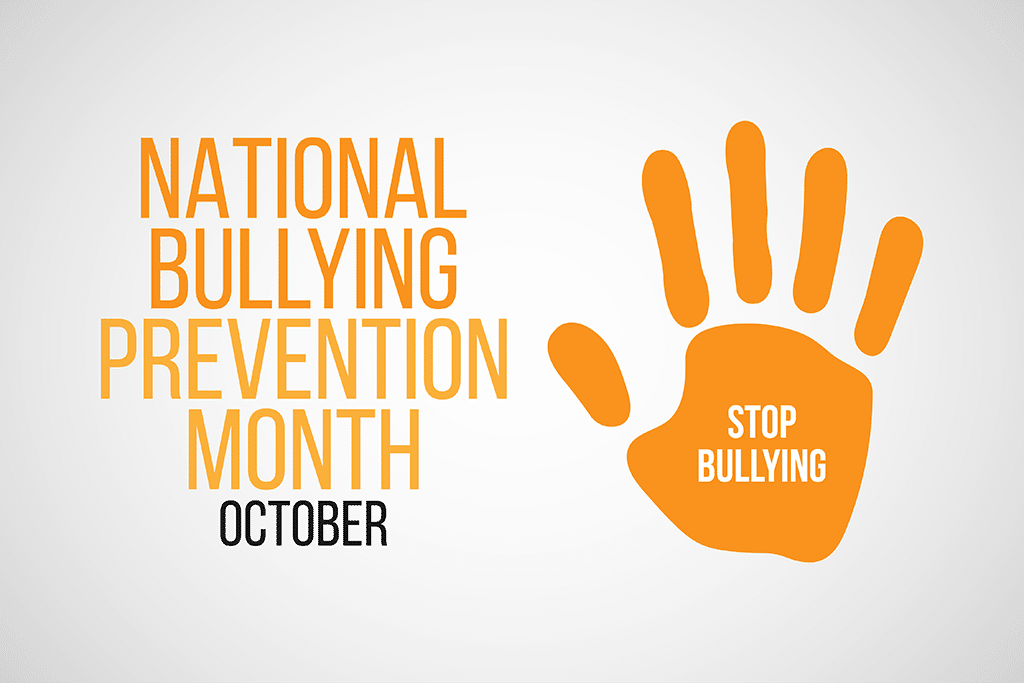Imagine, for a moment, the heartbreaking reality of a child too afraid to go to school because of bullying.
The month of October, recognized as National Bullying Prevention Month, serves as an important reminder that this is not just a hypothetical situation. It is a daily struggle faced by countless children and young people worldwide.
According to the Centers for Disease Control and Prevention, about one in five high school students reported being bullied on school property in the United States alone. More than one in six high school students reported being bullied electronically in the last year. Children as young as five years old have been the subjects of school torment. In fact, the CDC states that reports of bullying are highest in middle schools (28%) followed by high schools (16%), combined schools (12%), and primary schools (9%).
At Cornerstone, we are committed to providing resources and raising awareness for people experiencing bullying in hopes that we can provide a place where people feel safe, respected, and valued.
This blog is dedicated to raising awareness about National Bullying Prevention Month and the effects of bullying on school-aged children.
Why is Bullying a Problem?
Bullying is defined as repeated aggressive behavior towards another person, intended to cause harm or distress. It can take many forms, including physical, emotional, verbal, and cyberbullying.
Unfortunately, any of these forms can result in deep, negative consequences for victims, ranging from poor academic performance to low self-esteem, depression, anxiety, and even suicide. These actions can impact not only the victim but also the bystanders who witness the behavior and may feel helpless or fear becoming a target themselves.
If you are thinking about harming yourself or attempting suicide, tell someone who can help right away.
- Call 911 for emergency services.
- Go to the nearest hospital emergency room.
- Call or text 988 to connect with the 988 Suicide & Crisis Lifeline. The Lifeline provides 24-hour, confidential support to anyone in suicidal crisis or emotional distress. Support is also available via live chat. Para ayuda en español, llame al 988.
How You Can Help Prevent Bullying
The long-term impact of childhood bullying can be devastating. Exposure to teasing, insults, harassment, physical violence, and cyberbullying can lead to severe emotional, physical, and psychological damage.
Prevention in Schools
As a society, it is our duty to work together to create a safe and inclusive school environment where every student feels respected and valued.
As individuals, we can contribute to ending bullying in schools in several ways:
- Educating ourselves and others about the negative impacts of bullying
- Classroom presentations, school-wide assemblies, and parent training programs
- Peer support groups
- Advocating for anti-bullying policies and programs
- Creating a safe place for students to report bullying
- Fostering open communication between educators and parents
- Providing support and resources for children who are being bullied
- Zero-tolerance rules and policies for bullying and harassment
- Promoting an environment of equality and respect
One way to foster an inclusive and respectful environment is to celebrate differences and embrace diversity. Every person has unique qualities that make them special and valuable. It is important to recognize and appreciate those differences rather than discriminate against them. By creating an atmosphere that celebrates diversity, we teach children to be accepting and respectful of others.
Prevention for Others
Another way to prevent bullying is to encourage bystanders to speak up when they see something happening. Often, bullying occurs in the presence of others who may feel powerless and afraid to intervene.
By empowering bystanders to speak up and report bullying, we can ensure that the victim receives the necessary support and intervention. Set an example to your peers by treating people with kindness, compassion, and understanding. Be a voice of reason and help stop bullying by standing up for someone who needs it.
Remember: Avoid putting yourself or others in harm’s way. Speak up if you feel that you can safely deflect the conversation or help remove someone from the situation. If the situation becomes dangerous or uncomfortable, alert an adult or local authorities.
Prevention at Home
Parents and caregivers also have a crucial role to play in preventing bullying. Schools and families should work together to provide children with support, advice, and resources.
Parents can also model positive behaviors and help their children recognize, avoid, and respond appropriately to bullying situations. Make sure your children know that bullying hurts others and is not acceptable. Seek professional help if your child continues to bully others; there may be a deeper reason for the behavior. Encourage your children to be open and let you know if they’re experiencing or witnessing bullying behaviors.
By fostering open communication and a supportive home environment, parents can help their children feel safe and confident in navigating the challenges of school life.
Need a resource to share with your children at home? Check out Committee for Children. They provide activities, comics, and resources to help kids and the adults around them understand what bullying is, who is affected by it, and what you and your community can do to prevent it.
It’s Time for Change
Bullying is a collective problem that affects school culture and student outcomes. With a school-wide effort and multi-faceted approach, students can learn to advocate for themselves and others.
Schools have the responsibility of creating an environment where bullying is unacceptable and everyone in the school is expected to adhere to the same standards. Doing so sends a visible message of respect and safety for younger people to realize that they are not alone. Everyone deserves an opportunity to learn in a safe and supportive environment.
No matter how big the issue may feel, change can start small. It falls on us as a society to work together to prevent and end bullying.
Cornerstone is committed to promoting a community where every child feels safe, supported, and valued. If you or someone you know is struggling with bullying or needs mental health support, please reach out to us. We work with people and children of all ages to provide the help they need when they need it.


